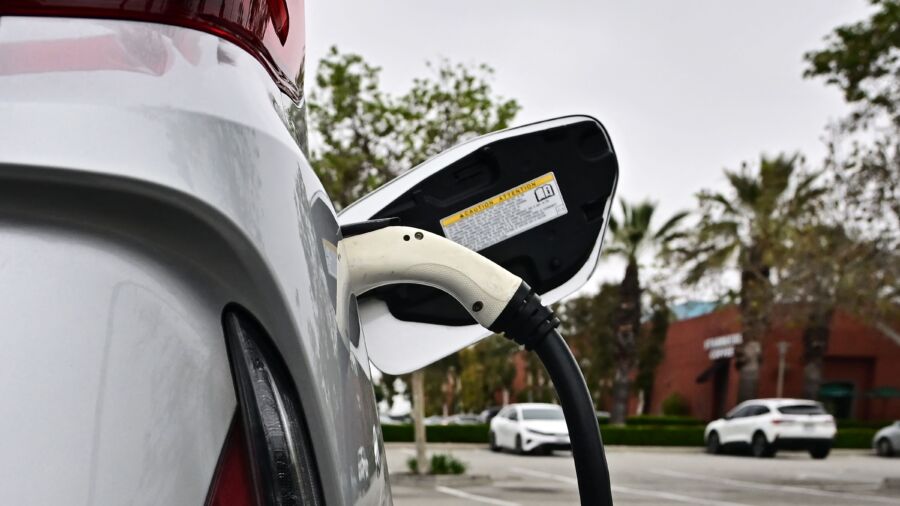A Canadian man was forced to abandon his electric truck after charging failures during a family road trip.
Dalbir Bala of La Salle, Manitoba, left his Ford Lightning electric vehicle (EV) in Minnesota last month after he failed to charge its battery at two different charging stations. He continued his drive to Chicago in a rented gas-powered vehicle.
“It was really a nightmare frustration for us,” Mr. Bala told CBC News.
Mr. Bala bought the truck for CAD$115,000 (around $85,000) in January. He also upgraded his home’s electrical panel and spent an additional $16,000 installing chargers at both his house and his trucking business.
Mr. Bala’s wife and three children joined him for the trip to Wisconsin Dells, Wisconsin, and Chicago, setting out with a fully-charged battery and three scheduled stops to recharge along the way.
His first stop was in Fargo, North Dakota, roughly 350 kilometers south of Winnipeg. He paid $56 to charge his vehicle’s battery from 10 percent to 90 percent capacity.
The problems began at his next stop in Albertville, Minnesota, when he received a “faulty connection” message in his truck after he plugged in the charger. He dialed the number on the charger for assistance but received no response.
The family headed to another charging station in Elk River 15 minutes away but the charger also did not work there.
“By now it was late afternoon. We were really stuck, hungry, and heartbroken,” Mr. Bala said.
With only 15 kilometers of battery life remaining, he decided to ditch his Lightning. He had it towed to a Ford dealership, and the family finished their trip to Chicago by renting a gas-powered Toyota 4Runner.
“It was in [the] shop for 6 months. I can’t take it to my lake cabin. I cannot take it for off-grid camping. I cannot take for even a road trip,” Mr. Bala said. “I can only drive in city—biggest scam of modern times.”
It is unknown why Mr. Bala’s truck was unable to charge at Albertville. The fast charger was operational on July 27, the day he visited, according to Robbin Nesbit, sales manager for the Wright-Hennepin Cooperative Electric Association, with usage logs indicating that customers were able to successfully charge their EVs.
Ford gave a statement to The U.S. Sun. “We are looking into this individual customer’s case,” said a spokesperson for the company.
Mr. Bala believes that more should be done by the government to guarantee that people receive the right information on electric vehicles.
“People have to make the right choices. I want to tell everybody to read my story,” he said. “Do your research before even thinking about it and make a wiser choice.”
Mr. Bala picked up his truck on his way back and now only uses it for commuting.

